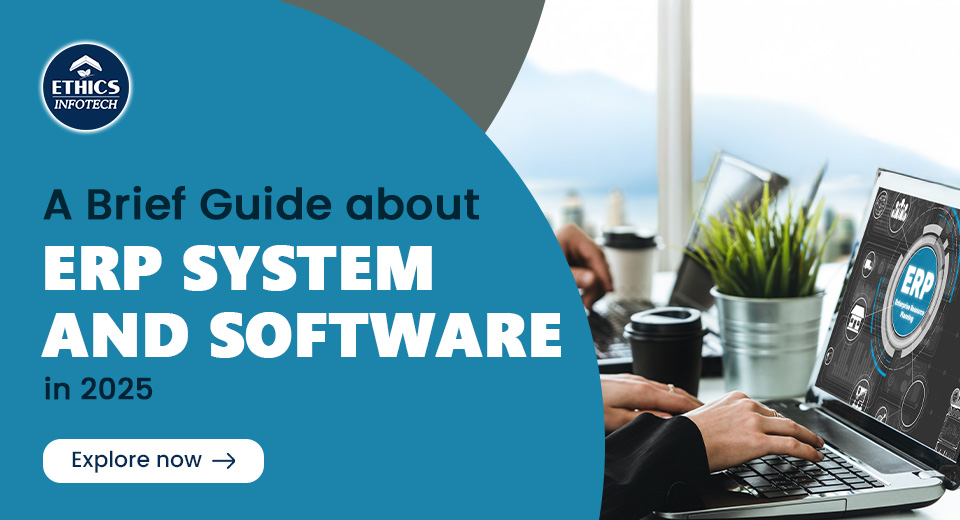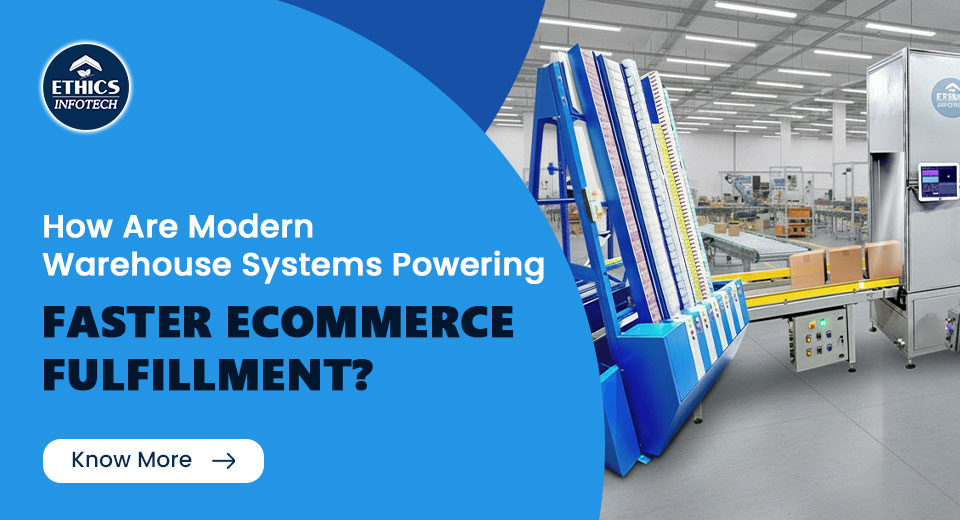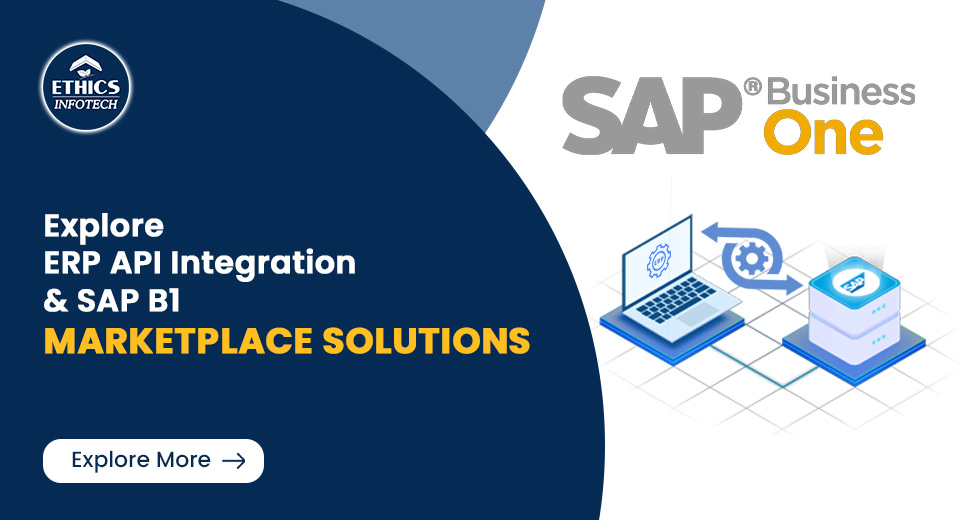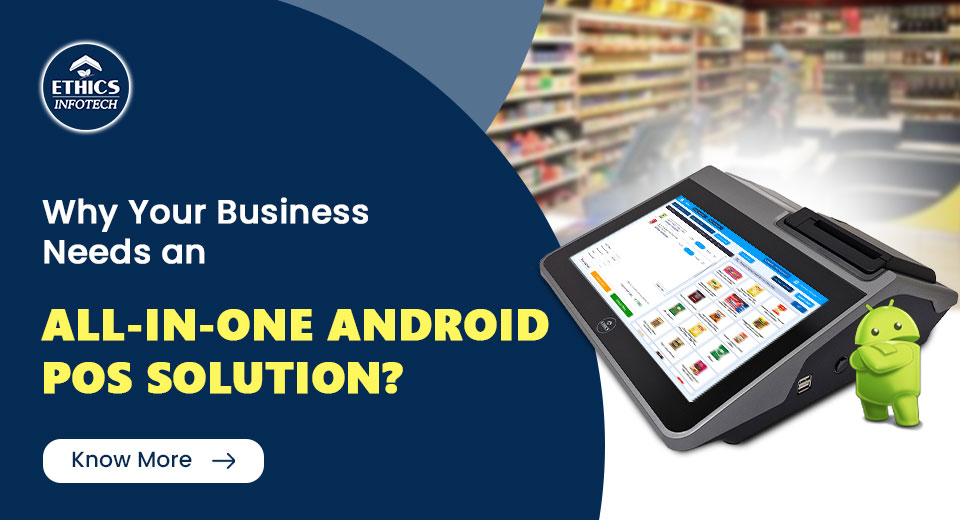A Brief Guide about ERP System and Software in 2025
An enterprise resource planning (ERP) system or software is a computer software application that manages a company's business operations. It does this by keeping track of inventory, production, customers, and employees for the company. It also provides reports about the company to help them make better decisions.
In 2022, ERP systems can help companies become more productive and more efficient and will be able to help them make smarter decisions.
ERP is used to automate business processes, streamline business operations, and make decision-making easier for the management of the company. Not only does it increase efficiency, but it also helps save costs as well.
With the increasing demand for businesses to have a more efficient and technologically advanced system, ERP systems have been introduced in multiple industries to assist. The following years will see the introduction of new ERP systems with different features and uses.
ERP systems and software in 2022 will be modified to handle the changes that have happened in business and technology.
What is an ERP system and ERP software?
ERP stands for Enterprise Resource Planning. It is a type of software that companies use to manage their resources. Those resources can include anything from money and people to products and services. ERP software allows businesses to see all of their data in one place. That way, they can make better decisions about how to run their company.
What is an ERP System?
In this digital age, enterprise resource planning (ERP) systems play a critical role in ensuring the smooth functioning of businesses. ERP systems provide an integrated view of all key operations within a company, from finance and accounting to human resources and manufacturing. They help organizations make better decisions by providing insights into areas such as inventory levels, production outputs, and customer demand. In addition, ERP systems automate business processes such as order processing and billing, resulting in increased efficiency and reduced operational costs.
What is ERP Software?
ERP software, or enterprise resource planning software, is a category of business management software that helps organizations manage their resources, including finances, customer data, manufacturing processes, and supply chains. ERP software integrates with all critical business functions to control and coordinate operations across the entire organization. In general, ERP systems automate and keep track of many manual processes, making them less error-prone and more efficient.
Types of ERP:
Enterprise resource planning (ERP) is a group of business applications that are designed to integrate data from one or more disparate sources into a single centrally-accessible information system. These applications generally provide the core business capabilities and serve as the backbone of an organization's operations.
There are three major players in the Enterprise Resource Planning software market: SAP Business One, Odoo ERP, and Custom ERP.
Custom ERP:
A custom ERP is designed by a company or an individual organization to meet their very specific and unique needs. In the case of small businesses, they usually choose this option because they know what they want and don't want in their system better than any consulting firm can infer from a sheet of questions.
Odoo ERP:
Odoo ERP is a comprehensive enterprise resource planning software that offers a broad range of features to manage and grow your business. With Odoo you can manage your finances, sales, operations, and human resources all in one place. Odoo is modular, so you can choose the features that are right for your business and add more as you need them. And because it's cloud-based, you can access your data from anywhere with an internet connection.
SAP Business One:
SAP Business One is an enterprise resource planning (ERP) software solution that enables small and midsize businesses to manage their finances, operations, and customer relationships. It covers a broad range of business processes, including financials, sales and marketing, procurement, human resources, and manufacturing. In addition to the core application, SAP offers a number of add-ons and modules that can be used to extend the functionality of the software.
Why use ERP?
Enterprise resource planning (ERP) is a category of business software that helps organizations run their operations more effectively. Businesses have been using ERP software for many years to manage and integrate the essential functions of their businesses, such as accounting, manufacturing, sales and marketing, supply chain management, and human resources. ERP systems allow companies to automate these processes, making it easier for them to track their performance and make better decisions in support of their strategic goals.
Although ERP is not the new kid on the block, it does seem like ERP systems are innovating at a rapid pace. They are more powerful than ever before and allow for more than just inventory management, but advanced features like Customer Relationship Management (CRM) and Enterprise Resource Planning (ERP).
The major benefits of utilizing an ERP system are that it will help you automate your processes, allow for a better overview of your business, reduce errors by taking manual processes out of the equation, and create a single point-of-entry to retrieve information.



